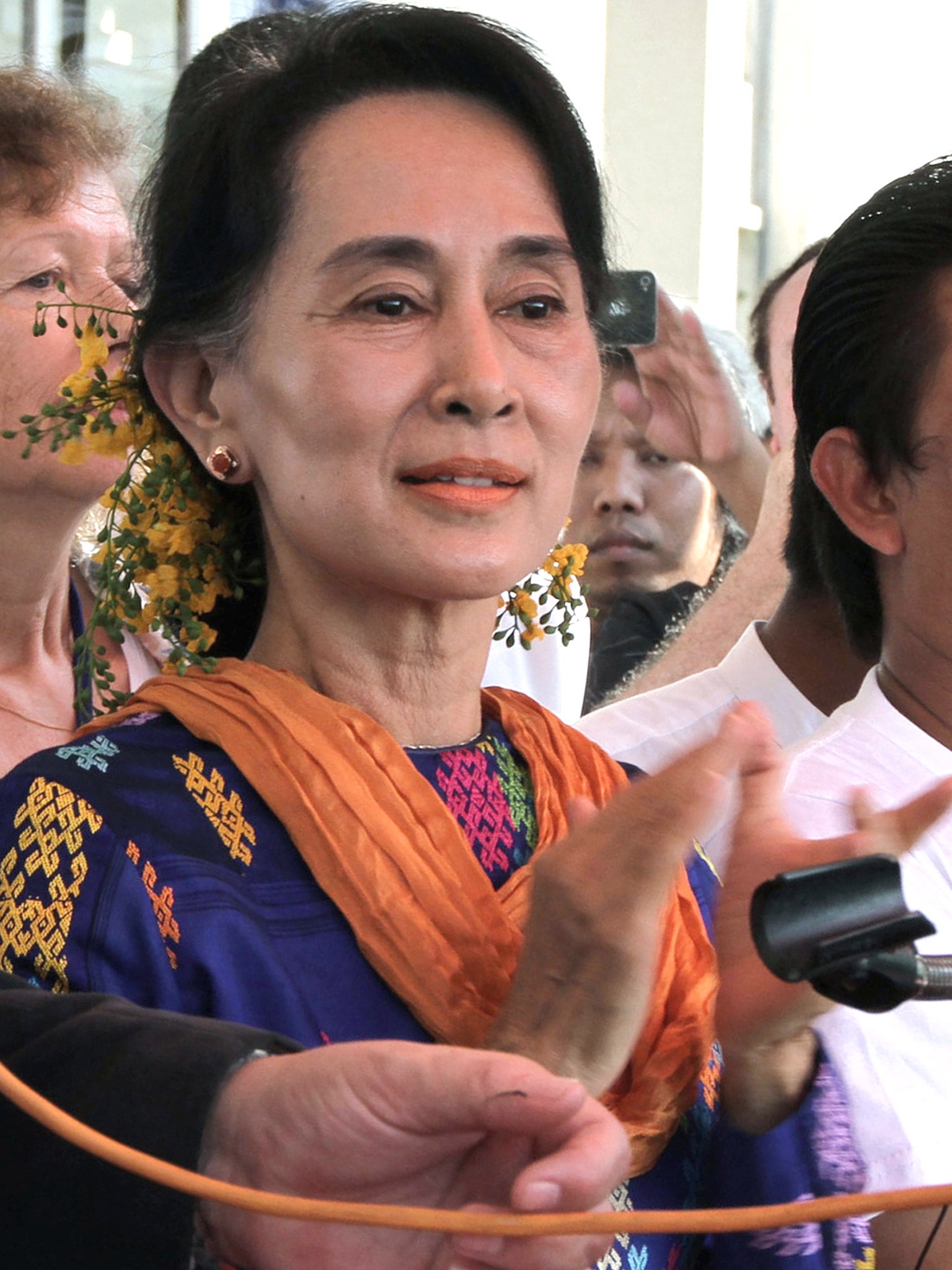Your support helps us to tell the story
From reproductive rights to climate change to Big Tech, The Independent is on the ground when the story is developing. Whether it's investigating the financials of Elon Musk's pro-Trump PAC or producing our latest documentary, 'The A Word', which shines a light on the American women fighting for reproductive rights, we know how important it is to parse out the facts from the messaging.
At such a critical moment in US history, we need reporters on the ground. Your donation allows us to keep sending journalists to speak to both sides of the story.
The Independent is trusted by Americans across the entire political spectrum. And unlike many other quality news outlets, we choose not to lock Americans out of our reporting and analysis with paywalls. We believe quality journalism should be available to everyone, paid for by those who can afford it.
Your support makes all the difference.Burma’s opposition leader, Aung San Suu Kyi, has offered to help negotiate an end to conflicts between the government and ethnic minority groups, after coming under pressure to speak out about alleged government abuses against the Kachin minority.
Ms Suu Kyi said she would take part in peace talks if the parties involved asked her to do so.
“I have been criticised by some people for not taking part in peace talks regarding the Kachin conflict. I have always said I am willing to take part in the peace process if the concerned parties wanted me to,” she said.
President Thein Sein has reached ceasefire agreements with most of the major ethnic groups but is still engaged in a bitter struggle with the Kachin in northern Burma.
A ceasefire that held for nearly two decades broke down in June 2011 after the Kachin refused to abandon a strategic base near a hydro-power plant that is a joint venture with a Chinese company. Clashes escalated after the government began using fighter planes and helicopter gunships in attacks starting on Christmas Day.
Earlier this month, the government and the Kachin agreed to de-escalate military tensions, open lines of communication and invite observers to their next meeting before the end of this month.
Subscribe to Independent Premium to bookmark this article
Want to bookmark your favourite articles and stories to read or reference later? Start your Independent Premium subscription today.

Join our commenting forum
Join thought-provoking conversations, follow other Independent readers and see their replies
Comments